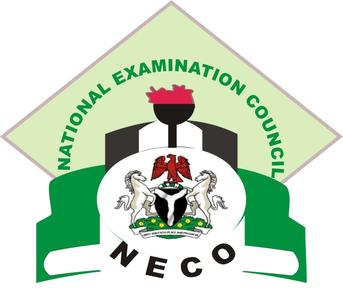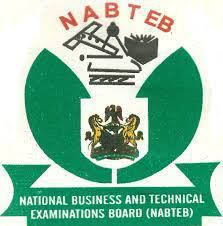2024 WAEC MARKETING ANSWERS
MARKETING ANSWERS Marketing-Obj! 1-10: ABDBCDBDCB 11-20: ABBDCCBCBD 21-30: DBBDBCACCB 31-40: BBAAACDBAA Completed 1ai) An entrepreneur is an individual who creates a new business, bearing most of the risks and enjoying most of the rewards. The process of setting up a business is known as entrepreneurship. The entrepreneur is commonly seen as an innovator, a source of new ideas, goods, services, and business/or procedures. (1aii) (i)Retained Earnings Businesses aim to maximize profits by selling a product or rendering service for a price higher than what it costs them to produce the goods. It is the most primitive source of funding for any company. (ii) Debt Capital Companies obtain debt financing privately through bank loans. They can also source new funds by issuing debt to the public. (iii)Equity Capital Companies can raise funds from the public in exchange for a proportionate ownership stake in the company in the form of shares issued to investors who become shareholders after purchasing the shares. (iv)Personal investment When starting a business, your first investor should be yourself either with your own cash or with collateral on your assets. This proves to investors and bankers that you have a long-term commitment to your project and that you are ready to take risks. (1b) (i)Availability of raw materials (ii)Nearness to market (iii)Availability of basic infrastructure (iv)Economic policy (v)Demographics (vi)Psychographics (2a) *(Pick one)* Marketing consists of the performance of business activities that direct the flow of goods and services from the producer to the consumer or users in order to satisfy customers and accomplish the company’s objectives. *OR* Marketing can be defined as the process of communicating the value of a product or services to customers. It is also a process by which companies create customer interest in products or services. (2aii) *(Pick Any Six)* (i)Risk bearing (ii)financing (iii)storage/warehousing (iv)Buying/selling/Exchange (v)Grading and standardizing (vi) Marketing information Research (vii) Transportation (2b) (i)Production concept: The production concept is the idea that a firm should focus on in relation to those products that it could product most efficiently. This concept focusses more on solving the problems l of production and little concern for the public satisfaction. (ii) Product concept: This concept assumes that customers will favour those products that offer the most quality for the price and therefore it is important for companies to produce quality products. It explains that customers are primarily interested in product quality. (iii)The selling concept: Production of goods does not mean assure sales most times. The sales concept paid little attention to whether if the product was actually needed; the goal simply was to beat the competition to the sale with little regard to customer satisfaction (iv) Marketing concept: Marketing concept focusses on increasing a company’s ability to compete and achieve maximum profits by marketing the ways in which it offer better value to customers than its competitors. This concept lay emphasis on marketing management with the twin goals of customer orientation and profitable sales volumes. (3a) (i) Receiving: operations that involve the assignment of trucks to docks, the scheduling and execution of unloading activities (ii) Storing: material’s movement from unloading area to its designated place in inventory (iii) Order Picking: the process of obtaining the right amount of the right products for a set of customer orders. This is the main and the most labour- intensive activity of warehouses (iv) Shipping: execution of packing and truck’s loading after picking, involving also the assignment of trucks to docks (v) Delivery: the transit time for transportation from the warehouse to the customer. (4ai) Need is a consumer ‘s desire for a product ‘s or service ‘s specific benefit, whether that be functional or emotional. (4aii) want is the desire for products or services that are not necessary, but which consumers wish for. (4aiii) exchange is a marketplace where securities, commodities, derivatives and other financial instruments are traded. (4iv) demand is the total quantity demanded across all consumers in a market for a given good. (4v) transaction is a completed agreement between a buyer and a seller to exchange goods, services, or financial assets in return for money. (5a) (Pick any four) (i)Marketing planning provides direction for all organization marketing effort (ii)Marketing planning help organization to raise finance for capital expenditure. (iii)Marketing planning prevents time wasting on ineffectual marketing activities. (iv)It save money by helping to ensure that the marketing budget is spent effectively (v)It helps to identify. prerequisites to planned activities. (vi)It helps to generate more clients by communicating effectively. (5b) (5bii) (i)overseeing trade agreement (ii)Reducing trade barriers (iii)Reducing worldwide tariffs (iv)Mediating dispute (6a) (Pick any Four) (i)Derived Demand. (ii)High concentration of production (iii)Direct channel of distribution (iv)Few Buyers And Large Volume. (v)Professional buying (6b) (i)Industrial market: It involves set of all individuals and organizations that acquire goods and services that enter into the production of other products or services that are sold, rented, or supplied to others. (ii)Reseller market:A market consisting of wholesalers and retailers who buy products for resale purposes.Resellers buy finished goods and resell them to the next level in a given distribution channel. (iii)Government market: A government market is a market where the main buyers are federal, state, and local governmental organizations. They purchase goods or services from private businesses.Categories: Others, WAEC Syllabus Past Questions and Answers
0 Responses




